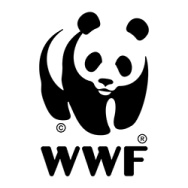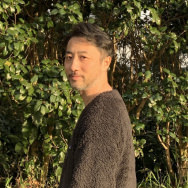In October 2022, in the midst of the COVID-19 pandemic, the WWF released the Living Planet Report 2022. The report stated that the health of nature and biodiversity has decreased by 69% over the past 50 years. The power of communication is required at all times to solve these global environmental issues. One perceived communication issue is properly conveying slightly complicated information based on scientific knowledge and data to as many people as possible. Environmental issues involve many actors and stakeholders, but as more people get involved, the words, actions, and situations from their perspectives and intentions become intertwined. In addition, as system thinking exemplifies, if we do not approach complex environmental issues as a single system from a wide perspective, even if we solve one issue optimally, another issue will eventually surface, and we will fall into a negative loop in which we are unable to globally optimize. And if an explanation is too complicated and difficult to say in a single phrase, people hesitate when communicating and talking to others, or they give too much evidence trying to be accurate, resulting in lengthy descriptions. We focus on the various intentions of information providers, various situations of information receivers, and how to connect them accurately and appropriately.
When tackling these issues, the first thing we value is a method of solving social issues called the Theory of Change. In order to view the situation from a wide perspective, we use a method called stakeholder mapping to write down what kind of people are involved in environmental issues and visualize the relationships. The next step is to do direct hearings. We look for insights into what the people involved are thinking and what they want to do under what circumstances. Then, we develop specific strategies by pinpointing the leverage points, bottlenecks, and points of engagement between the information sender and the receiver. Lastly, we do creative jumps to exercise our creativity. We either going back and forth through the process or run a prototype first, and update our communication measures incrementally. While taking these steps, we communicate clearly without using vague words.
In the next stage, we use SAVE NATURE PLEASE, a behavioral change framework for environmental conservation promoted by the WWF (https://www.wwf.or.jp/campaign/snp/). Execution is just as important as logical clarity, if not more so, controlling the expression quality of the final output—whether it makes someone smile, be deeply moved, or want to talk—greatly affects how whether the message is communicated. The WWF focuses on changing people's awareness and behaviors using behavioral science. Peoples' awareness and behaviors cause environmental issues, but they can also solve them. Part of the framework is NATURE, a set of behavioral rules that should be considered in the execution process. For example, “Normal” means it is essential to have a social identity in the community and normalize behaviors in said community by spreading them and mutually supporting each other. “Rewarding” means that people are affected in incentives and disincentives and take deliberate actions to avoid losses, so we polish our expression techniques by applying TIPS and success cases.
In addition to these guidelines and frameworks, we think it will be increasingly important to choose who to work with. In order to make even bigger social impacts, it is essential to not just use resources within the walls of NGOs, NPOs, and organizations, but to garner empathy and cooperate with people outside. We must look for creative people to cooperate with who can bring about overall optimization, not just partial. We believe that in order to be discovered by those people and garner their interest, we must constantly communicate what we are thinking and want to do.
Based on that policy, WWF Japan has spent recent years working on a campaign to prevent wild animals under the threat of extinction from being kept as pets (https://www.wwf.or.jp/campaign/uranokao). In a survey on people's awareness of raising wild animals as pets, 68% of respondents said that they were not knowledgeable about extinction, poaching, smuggling, and other risks. In order to change the awareness of those who want to raise wild animals that face these risks, we have started making and publicizing videos in which zookeepers explain the animals' ecology, behaviors, and difficulties and risks in raising them. We want people to know that these animals should not be raised as pets no matter how cute they are, and we have received wide approval.




